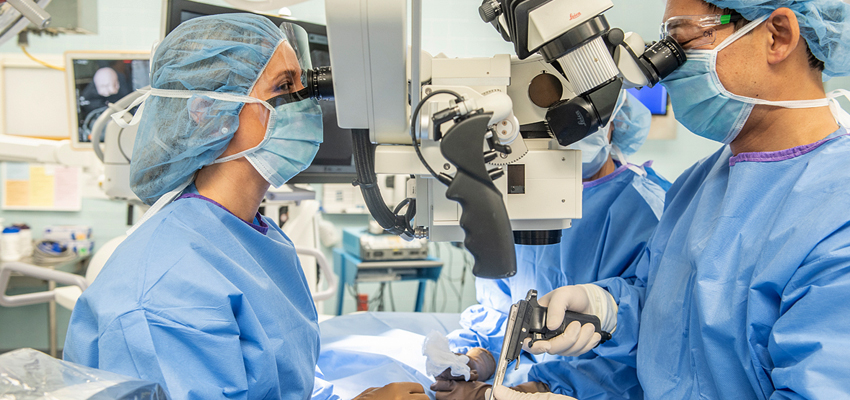Neurosurgery
Neurosurgery is a specialized branch of medicine that focuses on the surgical treatment of disorders affecting the nervous system, including the brain, spinal cord, and peripheral nerves. Neurosurgeons are highly trained medical professionals who specialize in performing surgical procedures to treat conditions such as brain tumors, spinal cord injuries, vascular disorders of the brain and spine, functional disorders (such as epilepsy and Parkinson's disease), congenital anomalies, and traumatic injuries to the nervous system.
Neurosurgical procedures are often complex and delicate, requiring precise techniques and advanced technology to achieve optimal outcomes while minimizing risks to the patient. Neurosurgeons utilize various surgical approaches, including open surgery, minimally invasive techniques, and image-guided surgery, to access and treat lesions or abnormalities within the nervous system.
Some common neurosurgical procedures include:
-
Brain tumor surgery: Neurosurgeons perform procedures to remove brain tumors, both benign and malignant, while preserving surrounding healthy brain tissue and critical neurological function.
-
Spinal surgery: Neurosurgeons treat conditions affecting the spine, such as herniated discs, spinal stenosis, spinal fractures, and spinal cord compression, through procedures such as discectomy, laminectomy, spinal fusion, and decompression surgery.
-
Vascular neurosurgery: Neurosurgeons manage vascular disorders of the brain and spine, including aneurysms, arteriovenous malformations (AVMs), and stroke, through procedures such as aneurysm clipping, endovascular embolization, and vascular bypass surgery.
-
Functional neurosurgery: Neurosurgeons address functional disorders of the nervous system, such as epilepsy, Parkinson's disease, essential tremor, and dystonia, through procedures such as deep brain stimulation (DBS), stereotactic radiosurgery, and epilepsy surgery.
-
Trauma surgery: Neurosurgeons provide emergent care for patients with traumatic injuries to the head and spine, including traumatic brain injury (TBI), spinal cord injury (SCI), and intracranial hemorrhage, through procedures such as craniotomy, decompressive craniectomy, and spinal stabilization surgery.
Neurosurgery often involves collaboration with other medical specialists, including neurologists, neuroradiologists, oncologists, anesthesiologists, and rehabilitation therapists, to provide comprehensive and multidisciplinary care for patients with neurological disorders. Advances in neurosurgical techniques, technology, and research continue to improve outcomes and quality of life for patients undergoing neurosurgical procedures.

